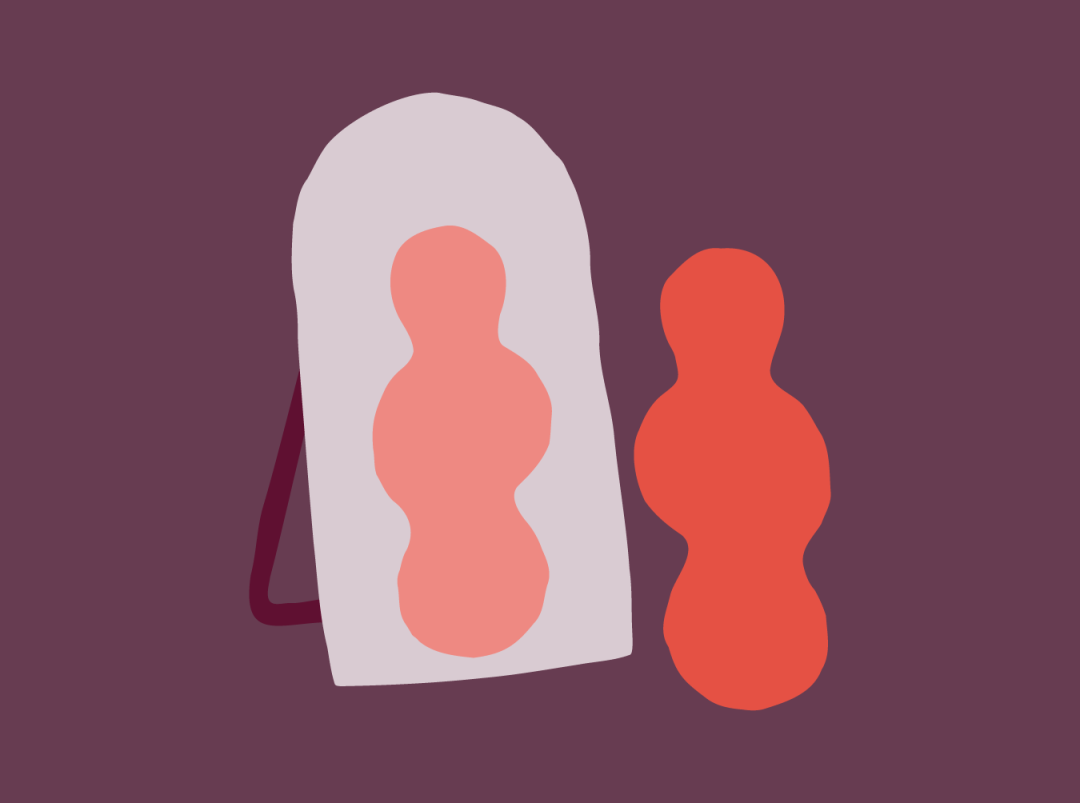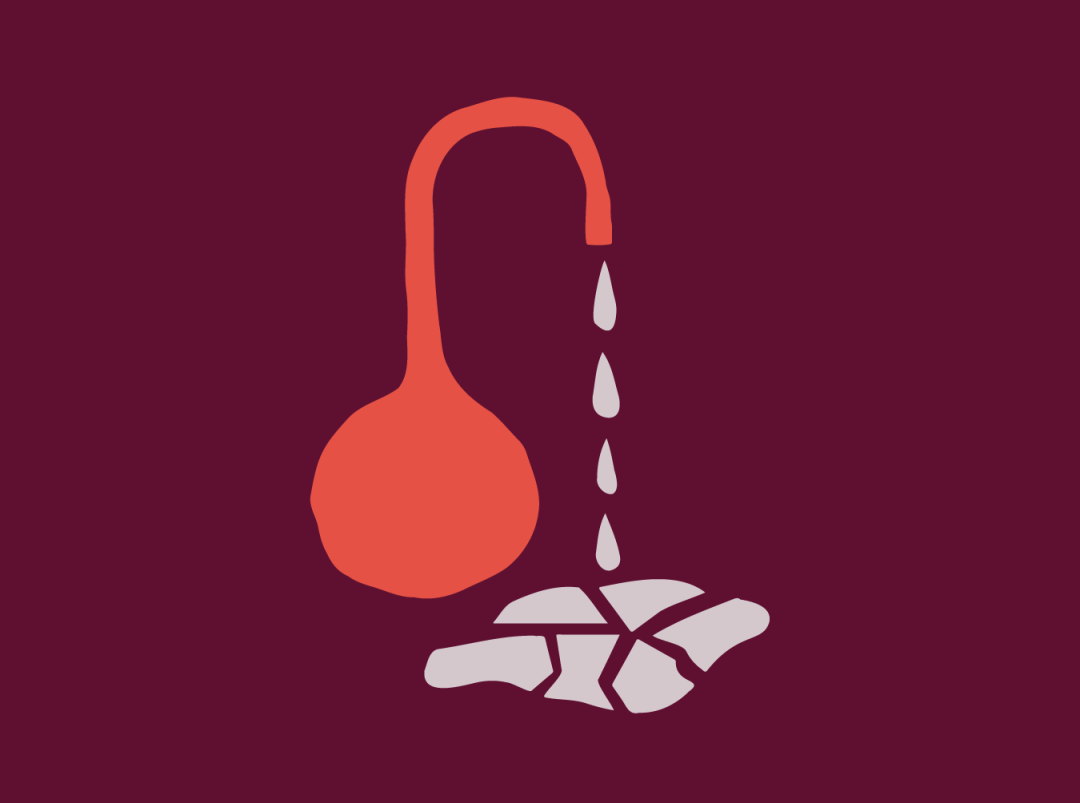#explainer
How Long Should Periods Actually Last?
health
·5 min read

by Team Thinx | 04/01/2023
We do plenty to stay on top of our periods. Menstruation apps, menstrual cycle charting, and other practices can give us pretty darn precise estimates of when our periods will arrive — all the better for knowing when it’s that time of the month to break out a hot water bottle, the Roku remote, and a king-sized bag of Hershey Kisses.
But even if we can clock on the dot when our periods arrive, how long they’ll go on can be less clear. Which raises the question: how long do periods last, or how long “should” they last for?
Every person’s cycle is unique — as unique as their signature PMS snack craving. That said, knowing how long a healthy menstrual bleeding window is for you can be a barometer of your overall health and provide you with invaluable insights into your well-being.
what is the typical length of a period?
The average length of a period is between two and seven days. That said, this is the median time, leaving plenty of room for variation.
When a healthcare professional says “menstrual cycle,” they’re not just alluding to those days you bleed but the whole of your cycle. “Cycle” refers to the length of time it takes for you to get from the first day of your period to the first day of the one that follows.
Menstrual cycles typically measure between 21 and 35 days. No matter how long they are, healthy ones can be divided into four main phases:
the follicular phase – The follicular phase begins on the first day of ovulation. This is when your ovaries generate follicles, which “nests” your egg. During this phase, your uterine wall thickens and estrogen is high (and perhaps your mood is too).
ovulation – Ovulation generally occurs about midway through your cycle or two weeks after your period starts. The mature egg is released into your fallopian tubes, which meander into your uterus.
the luteal phase – The luteal phase is when your body “preps” itself for fertilization. Progesterone is produced, as well as a bit of estrogen. If a fertilized egg doesn’t set up shop in your uterus, your period starts.
menstruation – Menstruation kicks off the next phase of your cycle; this is when your uterus sheds its lining.
factors that influence period length
Many of us menstruating people already know our periods aren’t always consistent. One month, your regular period might last for five to six days. Another month, it may make an appearance for two days and then vanish.
With that, let’s take a look at some factors that can affect how long yours sticks around.
chronic stress
Stress has a bad rap but small doses of it can actually be good for us, like propelling us to think, act, and create at our peak.
The real problem with stress arises when it persists. When this happens, stress hormones like cortisol flood the body and mess with the pathway between your hypothalamus and pituitary gland, which moderates the production and circulation of hormones—including those involved in reproduction.
As a result, you may experience:
Longer-than-usual periods
Shorter-than-usual
Late periods
Amenorrhea (missed periods)
While a shorter or absent period might sound desirable to some, chronic stress can also wreak havoc on your blood pressure, sleep, immune system, metabolism, and more.
weight
Being over or underweight can have a dramatic impact on your menstrual cycle and may cause menstrual flow irregularities, especially those involving your period’s duration (not to mention late or missed period).
Obesity in particular can trigger excess estrogen synthesis, which can cause longer and heavier menstrual flow. Discuss what your healthy weight would be with your primary care physician.
perimenopause
You may have had five- to six-day periods for two decades until you reach your mid-40s and find that your normal period is lasting longer and taking longer to arrive each month. Changes in your menstrual cycle length are a wholly natural part of perimenopause — that “era” leading up to menopause.
age
If you’re in adolescence and have just recently started menstruating, you may find that your cycles are longer than others, some months. Rest assured that this is par for the course; it may take up to three years after you’ve begun menstruating for your periods to become more consistent.
medications
Medications like hormonal birth control pills can initially cause longer, heavier bleeding until your cycle stabilizes. Other medications like aspirin, blood thinners, and hormone replacement therapy can have similar effects.
should you be worried about how long your period lasts?
Fluctuations in the duration of your periods aren’t always a cause for concern, if this variation is within the bounds of three or four days.
If your period lingers longer than seven days, you may have what’s known as menorrhagia, or heavy menstrual bleeding or prolonged bleeding. This can be a sign that you should book an appointment with your OBGYN.
what causes prolonged periods?
Prolonged bleeding may be more prevalent than many imagine, affecting between 27% and 54% of people who menstruate. Every individual case is different, but it may be caused by:
uterine growths – Polyps and fibroids are non-cancerous growths that may develop in the uterus or other parts of the reproductive organs. These can provoke heavier and longer bleeding.
hormonal imbalances – There are several conditions that may lead to hormonal disequilibrium, which can often mess with the length and “output” of your regular period. Some common ones include:
Thyroid disorders
Anovulation
Polycystic ovary syndrome (PCOS)
sexually transmitted infections (STIs) – STIs like gonorrhea and chlamydia may be accompanied by longer, heavier periods.
underlying disorders – Several bleeding and non-bleeding disorders have also been linked to prolonged periods, such as:
Kidney disease
Liver disease
Pelvic inflammatory disease (PID)
In worst-case scenarios, longer than usual periods can be a sign of uterine or cervical cancer — just another important reason to pay close attention when your period is out of whack.
To that end, it’s equally important to show yourself some love by keeping close tabs on your PMS symptoms. If PMS or your period is accompanied by nausea, cramping, vomiting, and acute pain, it may be indicative that something else is going on internally. Additionally, understanding the answers to questions like “why is my period black” and “why am I spotting one week after my period” can help you spot irregularities faster.
is it possible to shorten your period?
Whether it’s an impromptu trip just proposed by your partner or your favorite cousin’s destination wedding (or your wedding? Best of luck, white silk slip!), there are occasions in our lives when we desperately wish our periods would just leave us be.
Or maybe you just want a lifetime of shorter periods — period.
Either way, you may (emphasis on “may”) be able to curb how many days your period lingers with these practices:
sex – Sex, either solo or with your S.O., may urge your uterine lining to shed a little faster. How? Because orgasms (yes, orgasms are key here) can provoke uterine contractions that push more blood out of the uterus.
hormonal birth control – If you’re not on birth control but want to have more of a say in your menstrual cycle length, book an appointment with your OBGYN. Oral hormonal contraceptives, injections, hormonal IUD, and other hormonal birth control options may be able to regulate your cycle (once you’ve adjusted to them, that is). In some cases, they can shrink the length of your period. One thing to bear in mind: hormonal birth control is only available via prescription. Work with a trusted healthcare provider who can make recommendations suited to your lifestyle, pre-existing conditions, and reproductive healthcare goals.
stress reduction strategies – Challenges in your romantic relationships, an ill parent, losing your job—all of these pressures could cause an inordinate amount of stress. As mentioned, sustained stress can easily affect the length of your menstrual period and your PMS symptoms. Yoga, meditation, and walking are excellent ways to mitigate the mental and physical tolls of stress. For a more comprehensive resource, you may seek out the support of a mental health counselor or psychotherapist.
getting adequate exercise – The benefits of exercising regularly are countless. In addition to helping you maintain a healthy weight and releasing wonderful, buzzy endorphins, sufficient exercise helps regulate your menstrual cycle length. Discover a few activities that bring you pleasure and make them as integral a self care practice as oral hygiene and hydration.
Lastly, keep track of your period with an app or a calendar. This can alert you to any substantial changes that might warrant a check-up.
simplify your period days with Thinx
“How long does a period last?” is a common and crucial question. Stress, weight fluctuations, medications, and natural hormonal shifts all play a role in a period’s duration. But you know your body best—if your periods have become increasingly heavy and long, it may be time to schedule an appointment with your OBGYN to rule out any underlying issues.
You can also find peace of mind with Thinx. Our sustainable, reusable period underwear are there for you when your period comes before you thought it would (or lasts longer than expected!). Designed with odor-controlling, moisture-wicking materials to keep you dry, clean, and comfortable, shop Thinx to find the period solution you’ve been waiting for.
At Thinx, we strive to provide our readers with the most up-to-date, objective, and research-based information. Our content is crafted by experienced contributors who ground their work in research and data. Articles contain trusted third-party sources that are either directly linked within the text or listed at the bottom to lead readers to the original source.
sources:
Office on Women’s Health. Your menstrual cycle and your health.
https://www.womenshealth.gov/menstrual-cycle/your-menstrual-cycle-and-your-health
Cleveland Clinic. How long should your period last?
https://health.clevelandclinic.org/how-long-should-your-period-last/
Cleveland Clinic. Menstrual cycle.
https://my.clevelandclinic.org/health/articles/10132-menstrual-cycle
UC Berkeley, Berkeley News. Reseracers find out why some stress is good for you.
https://news.berkeley.edu/2013/04/16/researchers-find-out-why-some-stress-is-good-for-you/
Cleveland Clinic. Cortisol: what it is, function, symptoms & levels.
https://my.clevelandclinic.org/health/articles/22187-cortisol
NHS. Stopped or missed periods.
https://www.nhs.uk/conditions/stopped-or-missed-periods/
Mayo Clinic. Menopause.
https://www.mayoclinic.org/diseases-conditions/menopause/symptoms-causes/syc-20353397
Cleveland Clinic. Heavy menstural bleeding (mennorhagia): causes & treatments.
https://my.clevelandclinic.org/health/diseases/17734-menorrhagia-heavy-menstrual-bleeding
National Library of Medicine. Obesity, estrogens and adipose tissue dysfunction – implications for pulmonary arterial hypertension.
https://www.ncbi.nlm.nih.gov/pmc/articles/PMC7506791/
by Team Thinx


